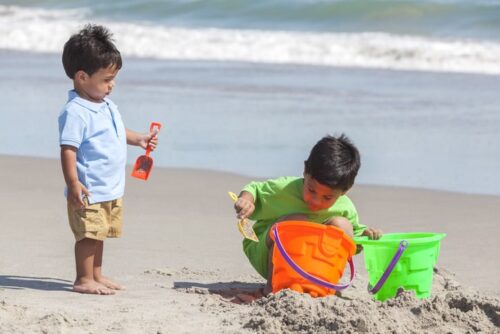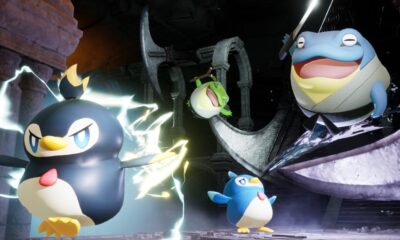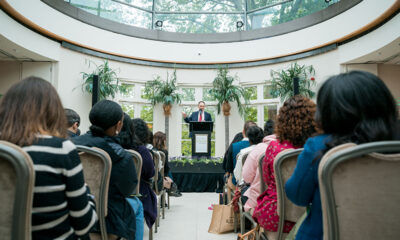Advice
How to prevent summer learning loss (and still have fun)

Sharpen young children’s number sense by playing “unplugged” number games. Research shows that intuitive understanding of numbers is crucial for academic success. Consider playing board games like “Sum Swamp” to practice basic addition and subtraction. Additionally, books and activities can help children visualize mathematical concepts.
Develop spatial skills through spatial rotation games and construction play. Practice spatial reasoning to improve math and science performance. Encourage activities like tangrams and blocks to boost spatial skills.
Take trips to museums, zoos, and nature sites, but make sure children engage in hands-on experiences and have thoughtful discussions. Encourage kids to interpret what they see and consolidate their learning by discussing what they remember.
Put away phones to protect learning and meaningful family experiences. Technology can interfere with educational experiences and diminish social connections.
Choose STEM summer camps that focus on informal, hands-on learning. Look for programs that involve activities like building, coding, robotics, and science labs.
If you can’t find an affordable summer camp, consider creating your own DIY program like “River Rangers” to help kids learn about various topics like river formation and ecosystems. Access these free materials and other ideas to combat summer learning loss here.
Additionally, you can find links to various educational resources in the article “Suddenly homeschooling? Here’s help for getting started.” If you’re seeking ideas for preschool science activities, check out these Parenting Science pages.
This is my personal suggestion, but research supports it: Personal curiosity is a significant motivator for learning (Gruber et al., 2014).
Many students have been bored by school until one fortunate day when they discovered an academic subject they were truly passionate about. These discoveries can be life-changing, yet many individuals never experience them. When I was a child, extended summer breaks allowed me to explore my curiosity in subjects that weren’t part of the standard school curriculum, such as paleontology, astronomy, rock collecting, Martian geology, the search for extraterrestrial life, and ancient history.
How different would I have been without these opportunities? I can’t say for sure, but I believe I would have been worse off. For some children, these extracurricular investigations lead to significant accomplishments. Astrophysicist Neil deGrasse Tyson attributes the start of his career to childhood experiences with a telescope.
Looking for interesting topics? Here are some suggestions:
– Animal behavior: Explore educational programs about animals by David Attenborough, engage in hands-on activities, and encourage wildlife tracking.
– Computer programming: Introduce kids to visual programming using Scratch by MIT to learn coding concepts.
– Dinosaurs: Check out resources on paleontology and dinosaurs for kids.
– Space exploration: Discover books and visit local planetariums, and explore NASA’s interactive website for kids.
For more ideas, see recommended children’s books. In-text references:
Meyer, F., Meissel, K., & McNaughton, S. (2015). Patterns of literacy learning in German primary schools over the summer and the influence of home literacy practices. Journal of Research in Reading, 40(1), 1-21.
Paechter, M., Luttenberger, S., Macher, D., Berding, F., Papousek, I., Weiss, E. M., & Fink, A. (2015). The effects of nine-week summer vacation: losses in mathematics and gains in reading. Eurasia Journal of Mathematics, Science and Technology Education, 11(6), 1339-413.
Roberts, T., Jackson, C., Mohr-Schroeder, M. J., Bush, S. B., Maiorca, C., Cavalcanti, M., … Cremeans, C. (2018). Students’ perceptions of STEM learning after participating in a summer informal learning experience. International Journal of STEM Education, 5(1), 35.
Rosqvist, I., Sandgren, O., Andersson, K., Hansson, K., Lyberg-Åhlander, V., & Sahlén, B. (2020). Children’s development of semantic verbal fluency during summer vacation versus during formal schooling. Logopedics, Phoniatrics, Vocology, 45(3), 134-142.
Sandberg Patton, K. L., & Reschly, A. L. (2013). Using Curriculum-Based Measurement to Examine Summer Learning Loss. Psychology in the Schools, 50(7), 738-753.
Shinwell, J., & Defeyter, M. A. (2017). Investigation of Summer Learning Loss in the UK-Implications for Holiday Club Provision. Frontiers in Public Health, 5, 270.
Thum, Y. M., & Hauser, C. H. (2015). NWEA 2015 MAP Norms for Student and School Achievement Status and Growth. NWEA Research Report. Portland, OR: NWEA.
Workman, J., von Hippel, P. T., & Merry, J. (2023). Findings on summer learning loss often fail to replicate, even in recent data. Sociological Science, 10, 251-285.
Written content of “Preventing Summer Learning Loss” last modified 7/2024. Portions of the text derive from previous versions of this article, written by the same author.
Image of boys on beach by istock/Spotmatik.
Image of kids playing board game by SeventyFour/istock.
Image silhouette of child gazing at fish in an aquarium by kiankhoon/istock.
Image of child’s hands and tangrams copyright Gwen Dewar.
-

 Destination8 months ago
Destination8 months agoSingapore Airlines CEO set to join board of Air India, BA News, BA
-

 Breaking News10 months ago
Breaking News10 months agoCroatia to reintroduce compulsory military draft as regional tensions soar
-

 Gadgets3 months ago
Gadgets3 months agoSupernatural Season 16 Revival News, Cast, Plot and Release Date
-

 Tech News12 months ago
Tech News12 months agoBangladeshi police agents accused of selling citizens’ personal information on Telegram
-

 Productivity11 months ago
Productivity11 months agoHow Your Contact Center Can Become A Customer Engagement Center
-

 Gadgets4 weeks ago
Gadgets4 weeks agoFallout Season 2 Potential Release Date, Cast, Plot and News
-

 Breaking News10 months ago
Breaking News10 months agoBangladesh crisis: Refaat Ahmed sworn in as Bangladesh’s new chief justice
-

 Toys12 months ago
Toys12 months ago15 of the Best Trike & Tricycles Mums Recommend























